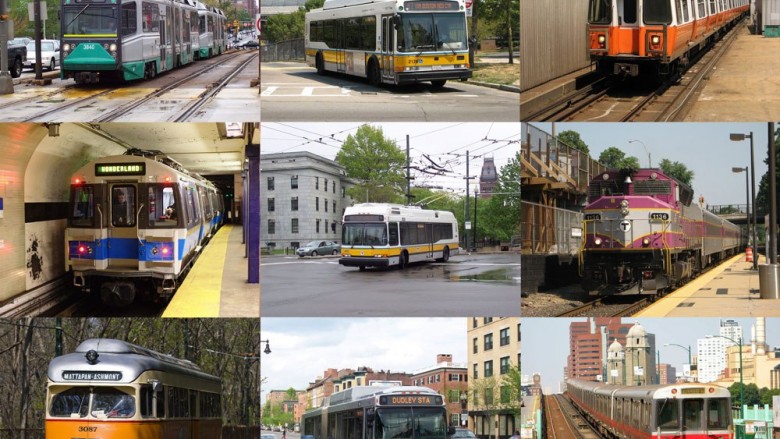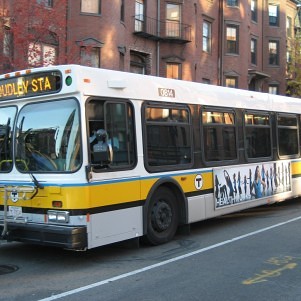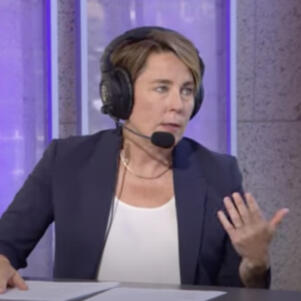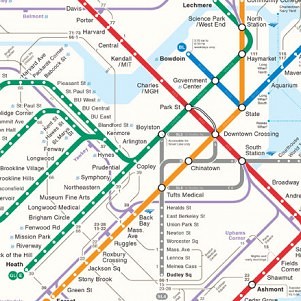MBTA borrowing plan freed up cash for state budget balancing
By State House News Service | August 9, 2016, 6:57 EDT
 (Photos courtesy of Wikipedia.org)
(Photos courtesy of Wikipedia.org) BOSTON — The Baker administration, which struggled to balance the state’s books in fiscal 2016, plans to use borrowed dollars for its final two months of payments to the MBTA, freeing up operating dollars.
An administration official said the operating cash would be used to address the fiscal 2016 tax revenue shortfall – which fell $484 million below expectations.
The T’s ongoing budget problems were improved somewhat in the fiscal year that ended in July.
Facing a deficit projected at $170 million, the T was allotted $187 million in the fiscal 2016 budget passed by lawmakers more than a year ago. That $187 million was funded by the Commonwealth Transportation Fund, which is fed by transportation revenues.
Over the last 12 months, the MBTA lessened its fiscal 2016 structural shortfall to about $95 million and devoted the surplus money left over from the state bailout to improvements and repairs on a system that groans under a more than $7 billion state-of-good-repair deficit – the estimated cost it would take to bring the entire system into good working order.
Rather than give the T cash for May and June of 2016, the Office of Administration and Finance recently opted to use capital dollars. The administration withheld its June payment, according to MBTA Chief Administrator Brian Shortsleeve, and on Monday the T’s Fiscal and Management Control Board agreed to return the roughly $15.6 million payment from May.
According to the Office of Administration and Finance, the swap in funding sources will align capital expenditures – for repairs and upgrades – with capital dollars – which are borrowed.
“We are working with the T and MassDOT to provide $31 million in capital allocation that was originally planned to be transferred from the [fiscal 2016] operating budget, since they plan to use the funds on capital expenses,” Administration and Finance spokesman Garrett Quinn said in a statement. According to the office, the T should receive the money in the next few weeks, and it will come out of the fiscal 2016 or fiscal 2017 capital budgets, or some combination of those two.
“We’re getting the $31 million,” Shortsleeve told reporters ahead of Monday’s meeting of the T control board.
When the control board raised fares on riders an average of 9.3 percent earlier this year, the board also established a “lock box” to use the $42 million in new fare revenue, along with surplus state dollars for improvements to the system.
The lock box fund totals about $86 million, according to Shortsleeve, and once the state transfers over the $31 million it will total about $117 million.
The T has “identified close to $65 million in projects” for that lockbox fund, committed about $10 million, and spent about $2 million, Shortsleeve said Monday.
— Written by Andy Metzger
Copyright State House News Service










